Vocabulary Building Math Worksheets for Ages 5-8
17 filtered results
-
From - To
Introducing "Vocabulary Building Math Worksheets for Ages 5-8" – a fun and educational resource from Kids Academy designed to enhance early math skills while expanding language proficiency. These printable worksheets seamlessly blend math practice with vocabulary development, making learning engaging for young students. Tailored for children aged 5-8, each worksheet introduces essential math concepts together with corresponding mathematical terms, fostering a deeper understanding. Practical exercises, colorful illustrations, and age-appropriate activities ensure that kids stay motivated and excited to learn. Perfect for parents and teachers alike, these worksheets build strong foundational skills in both math and language, shaping future success.
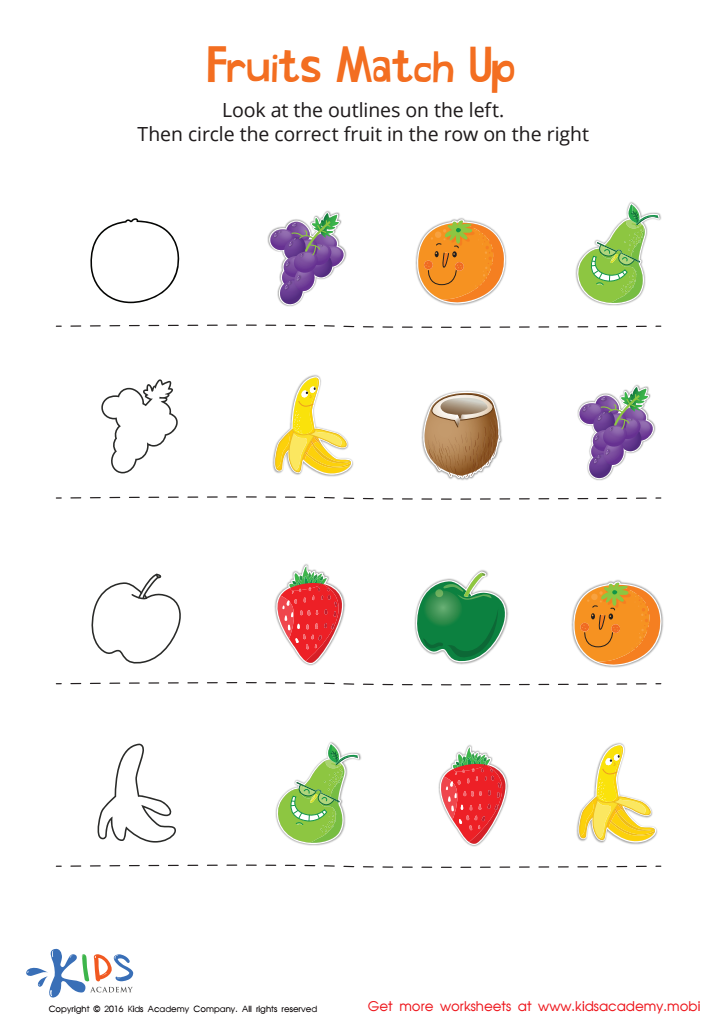

Fruits Match Up Worksheet


Matching: Classifying Toys by Size Worksheet
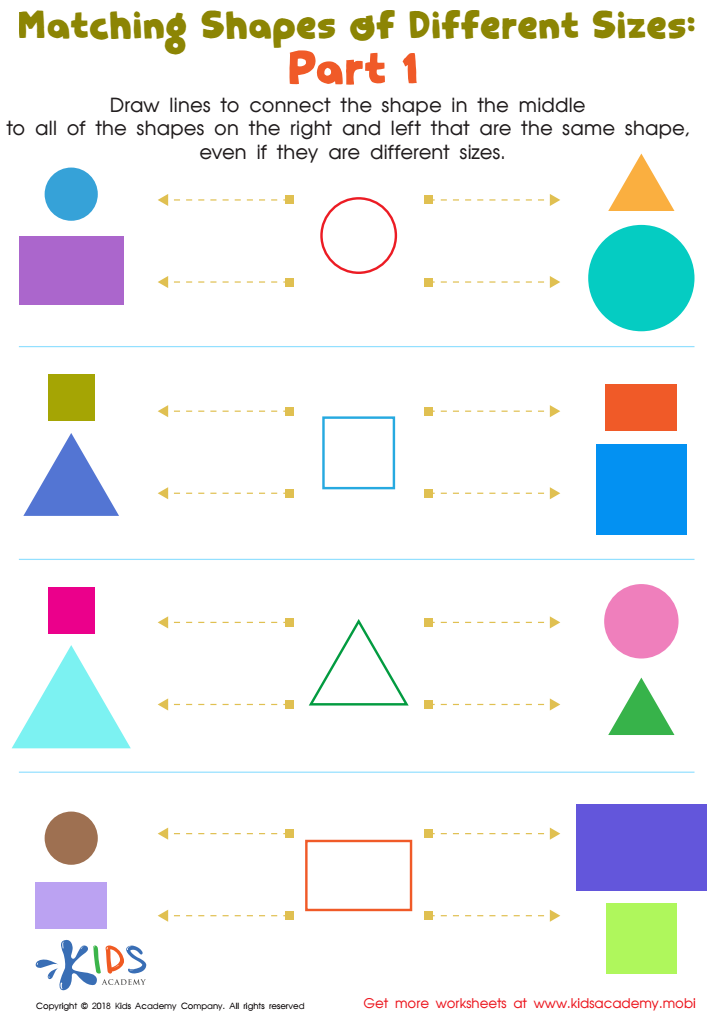

Geometry: part 1 Worksheet


Fairy Tale Worksheet: Count and Classify with Rapunzel
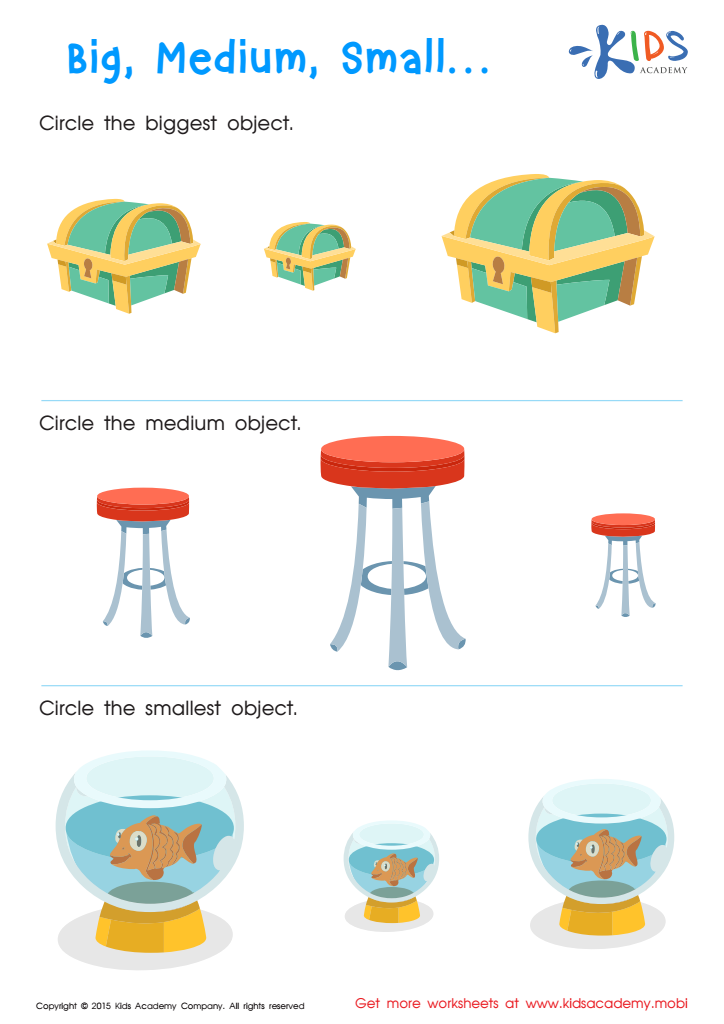

Big Medium Small Worksheet
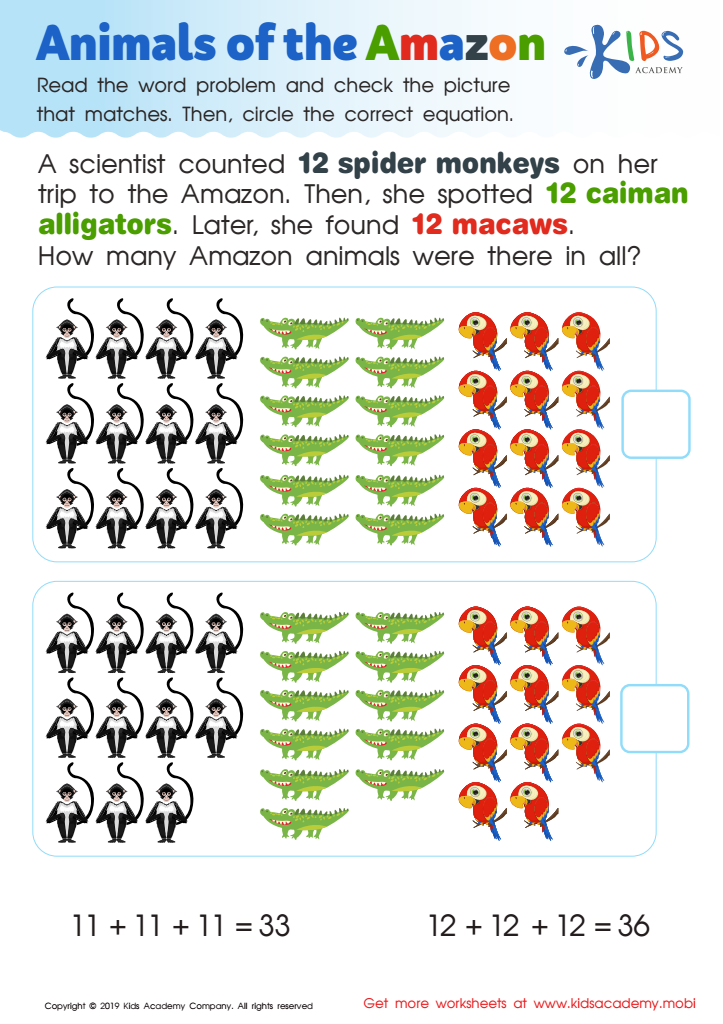

Animals of Amazon Worksheet
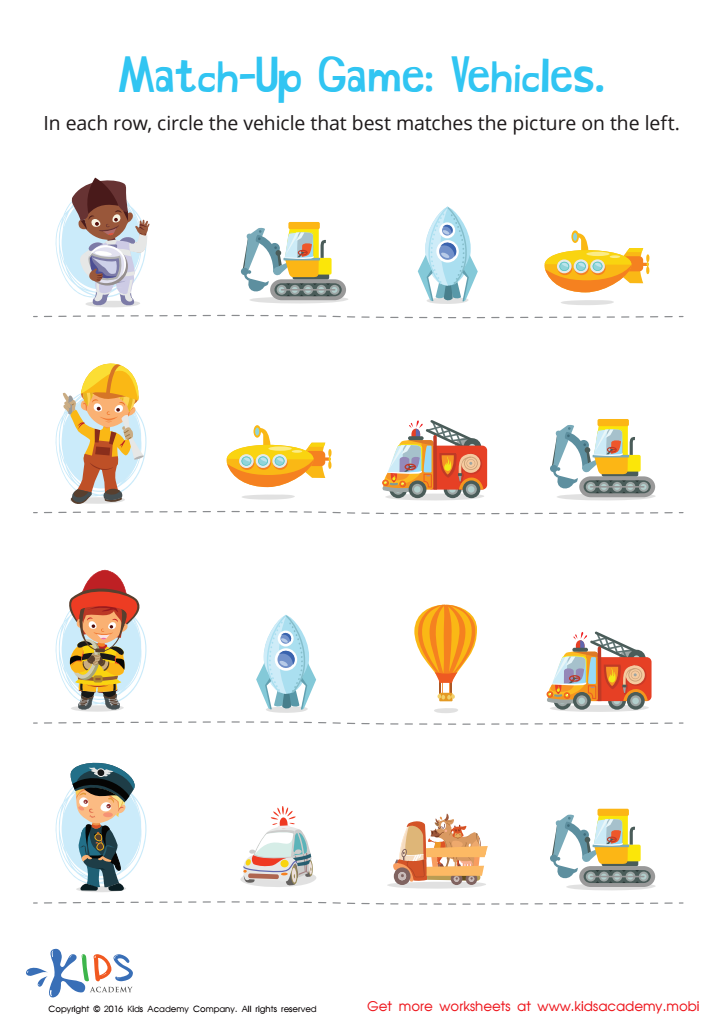

Vehicles Worksheet
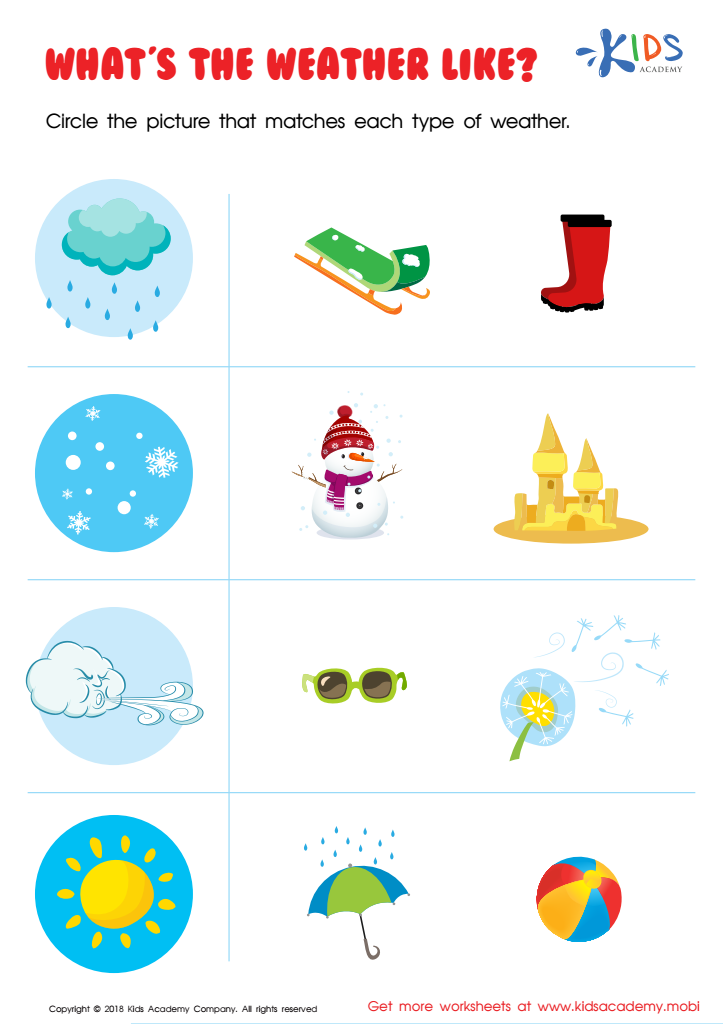

What's the Weather Like? Worksheet
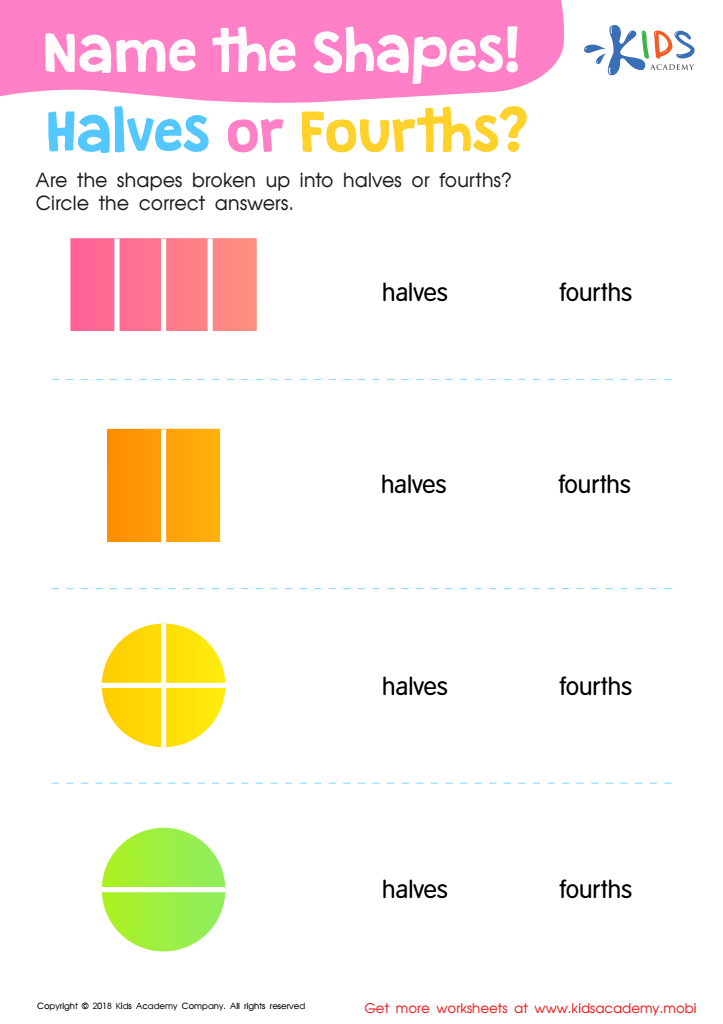

Name the Shapes Halves or Fourths? Worksheet
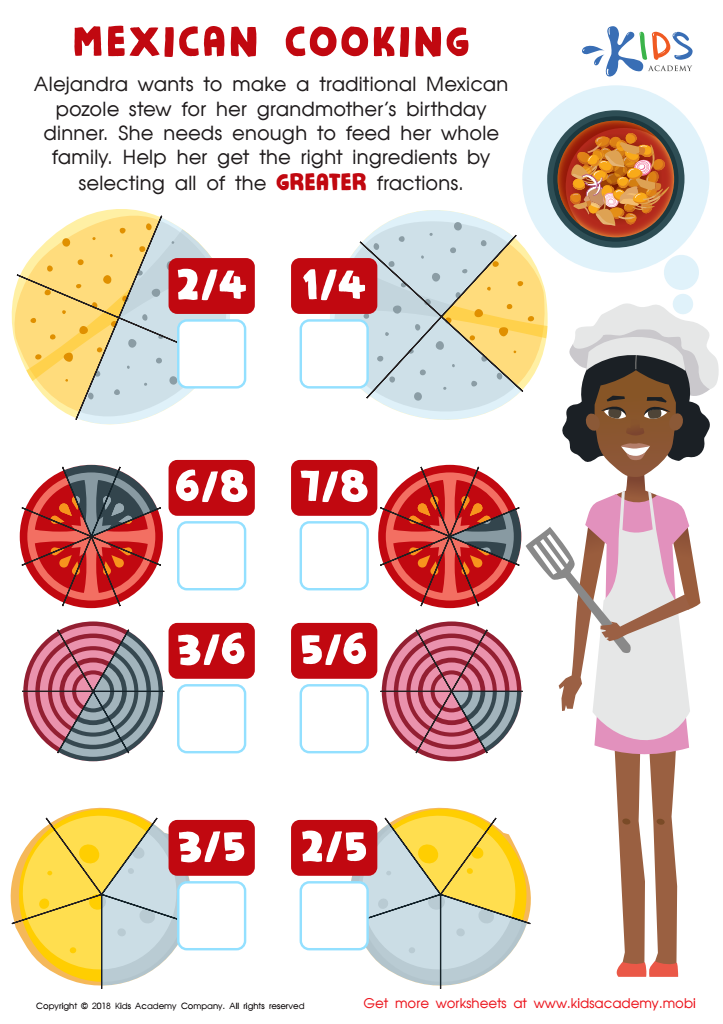

Mexican Cooking Worksheet
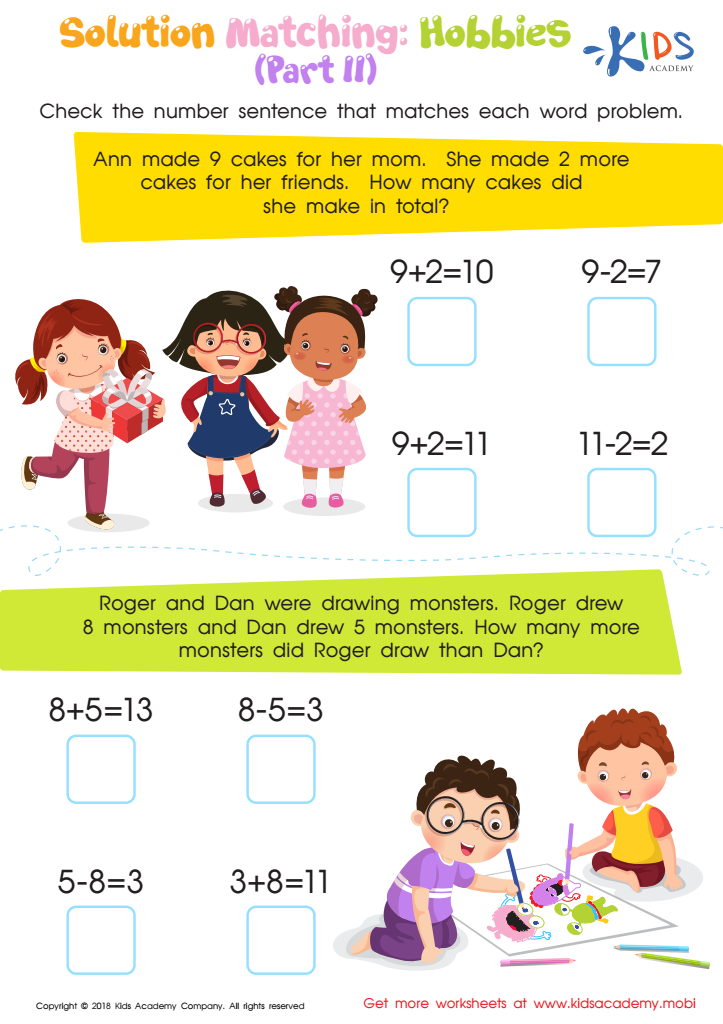

Solution Matching: Hobbies. Part 2 Worksheet
Engaging in vocabulary building for math at an early age significantly benefits children aged 5-8. First, it lays a strong foundation for future academic success. When children understand math vocabulary, they can better grasp concepts and follow instructions in class, which leads to improved comprehension and performance. Learning terms like "addition," "subtraction," "greater than," and "less than" helps children articulate mathematical ideas accurately and with confidence.
Additionally, integrating math vocabulary into everyday language fosters critical thinking and problem-solving skills. Children who are comfortable with math-specific language can approach problems more systematically, breaking down tasks using the correct terms. This forms a habit of logical thinking that extends beyond math to other subjects and real-life situations.
Moreover, developing a robust math vocabulary promotes inclusive learning. Every child, regardless of their initial skill level, benefits from a consistent and coherent mathematical language. This uniformity aims to close any educational gaps early, ensuring every student can keep pace with curricular demands.
Lastly, a strong math vocabulary can bolster a child's self-esteem. Success in math-oriented tasks and clear communication instills a sense of accomplishment. When they participate confidently in classroom discussions, they feel a sense of belonging and academic competence.
In summary, building a math vocabulary for young children equips them with essential tools for understanding, critical thinking, and academic confidence.

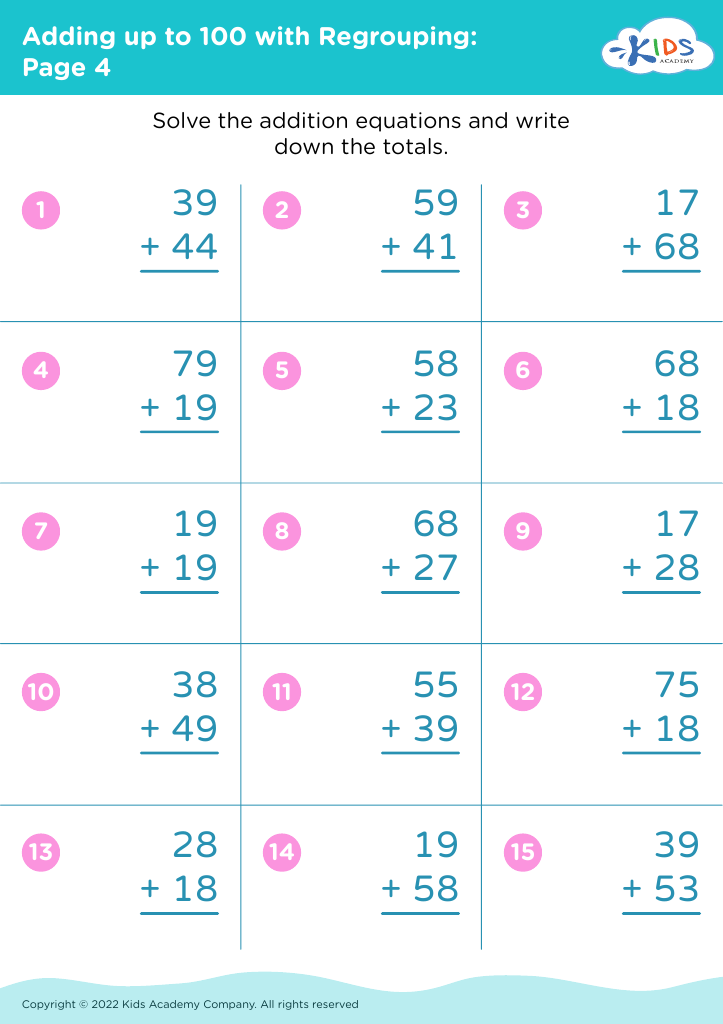

 Assign to My Students
Assign to My Students



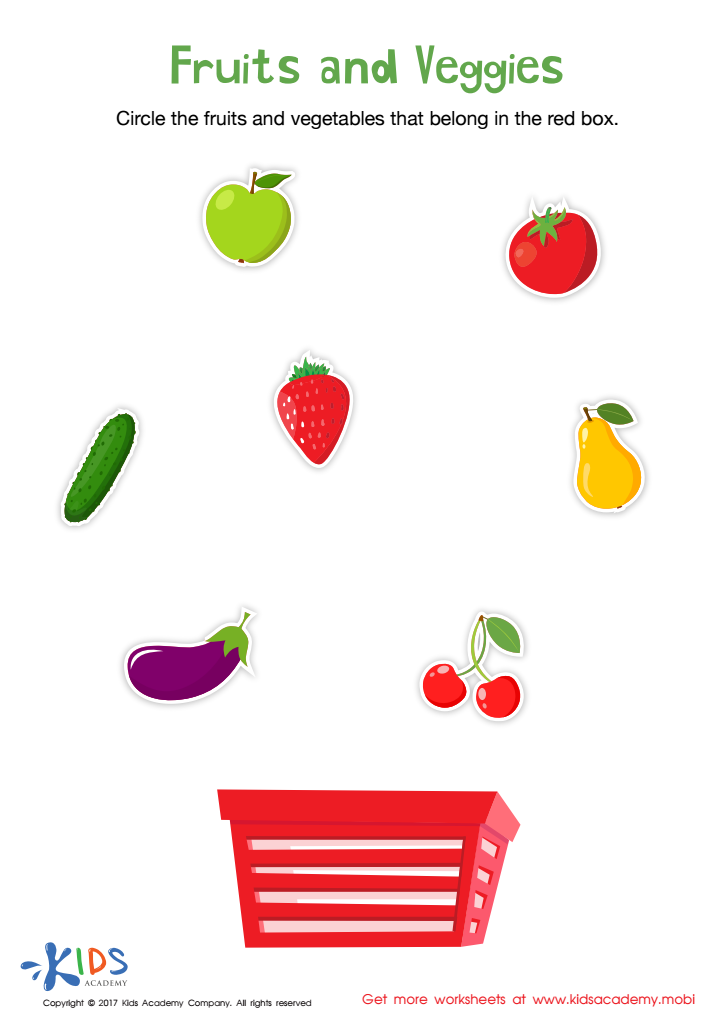

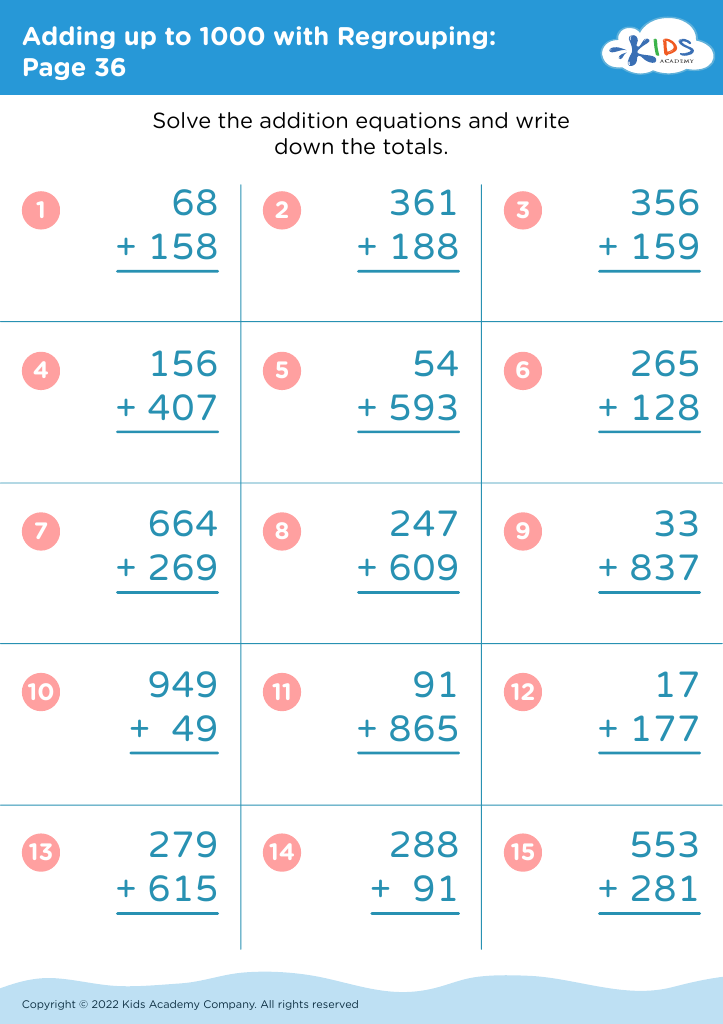







.jpg)











